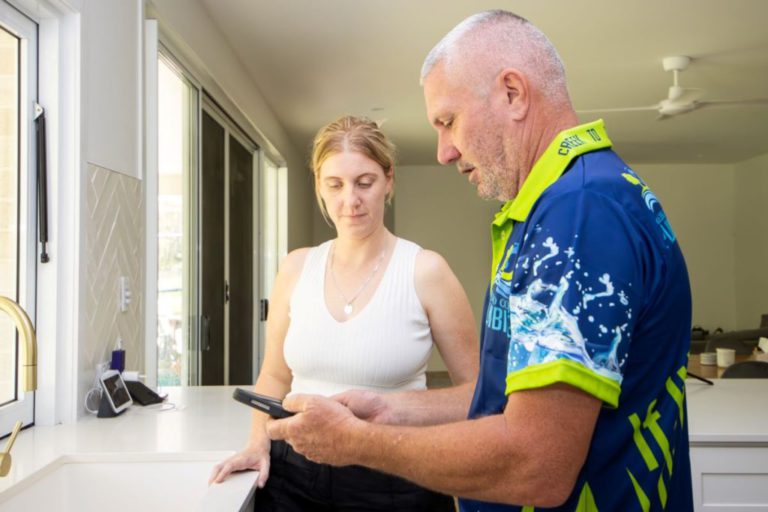Selecting the perfect hot water system for your home goes beyond merely evaluating basic functionalities. In the contemporary market, consumers are increasingly prioritising energy efficiency, significant long-term savings, and adaptability with cutting-edge technologies like solar power and smart home systems. For those residing in Queensland, decision-making often centres around two particularly favoured options: solar hot water systems and <a href="https://writebuff.com/heat-pump-repairs-in-brisbane-not-just-a-plumbers-job/">heat pumps</a>. A thorough understanding of the benefits and features of these systems can empower you to make an informed decision that meets your household’s specific needs.
Both of these alternatives offer energy-efficient solutions when evaluated against traditional electric storage or gas systems. However, they function differently and cater to varied household requirements, climatic conditions, and financial constraints. This article aims to provide an in-depth exploration of the distinct characteristics associated with each system, shining a spotlight on the growing preference for heat pump systems among homeowners in search of efficiency and cost-effectiveness.

In-Depth Insights into Solar Hot Water and Heat Pump Systems
Exploring Solar Hot Water Systems
Solar hot water systems harness energy from the sun through specially designed collectors installed on rooftops. The solar energy captured is subsequently used to heat water stored in a dedicated tank, offering an environmentally friendly solution for hot water needs. Most systems come equipped with a backup heating source, either electric or gas, ensuring a consistent supply of hot water even during cloudy weather or peak usage times, thus maintaining comfort and convenience for your household.
Understanding Heat Pump Hot Water Systems
In contrast to solar hot water systems, heat pumps operate independently of direct sunlight. They extract warmth from the ambient air using a refrigeration cycle and transfer this heat to water stored in a tank. This process is akin to how an air conditioning unit works but in reverse. Additionally, heat pump systems do not require rooftop installations, simplifying their setup and making them accessible for a wider range of homes.
Evaluating Efficiency and Performance of Hot Water Systems
| Factor | Solar Hot Water | Heat Pump System |
|---|---|---|
| Requires direct sunlight | ✓ | ✗ |
| Operates effectively in shaded areas | ✗ | ✓ |
| Available for night-time use | ✗ | ✓ |
| Requires roof space for installation | ✓ | ✗ |
| Consistent performance in winter | ✗ | ✓ (in QLD climates) |
| Eligible for STCs/rebates | ✓ | ✓ |
| Compatible with solar PV systems | ✗ (standalone) | ✓ |
Note: In the warm climate of Queensland, heat pumps typically maintain high efficiency throughout the year, establishing them as a reliable and practical choice for homeowners.
Essential Considerations for the Installation and Maintenance of Hot Water Systems
The installation of solar hot water systems requires careful positioning of collectors on your roof, which can complicate the installation process, especially in older homes or those with limited rooftop access. Factors like shading, roof orientation, and pitch can significantly impact system performance, making thorough planning crucial. Additionally, the placement of the tank and plumbing can limit configuration options, resulting in a more complex installation experience compared to other systems.
Conversely, heat pumps are typically installed at ground level and come in either integrated or split systems, requiring a footprint similar to that of conventional electric tanks. They do not necessitate rooftop components, which streamlines the installation process and makes it more manageable for homeowners. Furthermore, maintenance for heat pumps is often less burdensome, as they are less exposed to UV rays and adverse weather conditions, ultimately decreasing both the frequency and costs associated with upkeep.
Optimising Savings Through the Right Hot Water System Selection
Both solar hot water systems and heat pumps significantly contribute to lowering energy bills. However, heat pumps often provide greater savings for households that:
- Experience limited sunlight throughout the day and need a reliable hot water source
- Use hot water during early morning or late evening hours when energy costs tend to be higher
- Already have rooftop solar PV systems and wish to enhance their energy self-consumption
- Prefer to avoid reliance on roof structures or are hesitant to penetrate roof tiles
Since heat pumps operate using electricity, they can be programmed to run during peak solar generation hours. This flexibility makes them an ideal complement to existing solar panel systems. Rather than exporting excess energy at a reduced feed-in tariff, homeowners can directly utilise their solar energy to heat water efficiently, maximising both cost-effectiveness and energy savings.
Assessing Initial Costs and Available Rebates for Hot Water Systems
Both solar hot water systems and heat pumps are eligible for Small-scale Technology Certificates (STCs), which can significantly reduce the purchase price, making these systems more financially accessible for homeowners. The number of STCs available depends on various factors, including geographical location, system size, and efficiency ratings. Moreover, heat pump systems may qualify for specific rebates in Queensland through the Energy Efficient Communities Program, which vary based on household characteristics and the nature of the installation.
To effectively navigate these rebate opportunities, it is highly advisable to consult with a qualified installer such as Creek to Coast Plumbing. They can offer expert insights on eligible systems and handle the rebate application process, ensuring that you take full advantage of all potential savings as part of the installation service.
Determining the Best Hot Water System for Queensland Homes
In the coastal climates of Queensland, including the Sunshine Coast and Moreton Bay, heat pumps frequently outperform solar hot water systems due to their consistent performance, simplified installation, and compatibility with solar technologies. They are especially advantageous for homes that experience shading or have semi-sunny conditions and are particularly effective in residences equipped with battery storage or smart controllers that optimise energy consumption.

Identifying the Best Options for Hot Water Systems
While solar hot water systems remain relevant, particularly in homes with unshaded, north-facing roofs that have high daily hot water demands, heat pump systems offer a more versatile and comprehensive solution for a wide range of homeowners throughout Queensland. They provide dependable performance, simplified installation processes, and seamless integration with existing solar PV systems, making them a worthwhile investment for those prioritising energy efficiency and long-term savings.
If you are contemplating an upgrade, we encourage you to check out our Heat Pump Hot Water Systems Installation Page for further information or to request a customised quote tailored to your specific needs.
The Article: Heat Pumps vs Solar Hot Water: Which is Superior? first appeared on https://writebuff.com
The Article Heat Pumps vs. Solar Hot Water: A Comparison of Efficiency Was Found On https://limitsofstrategy.com






